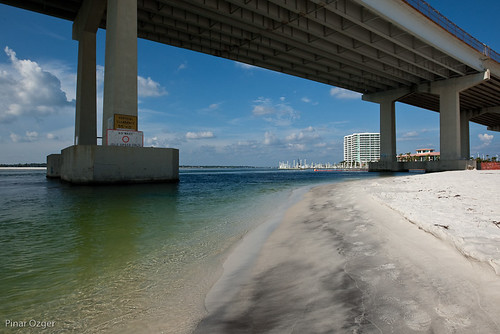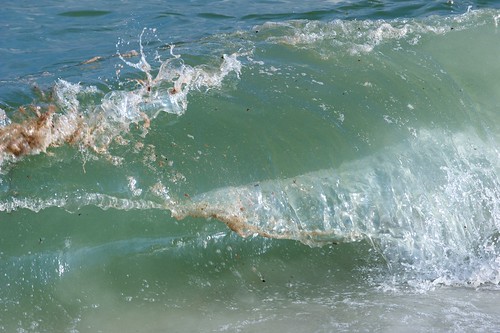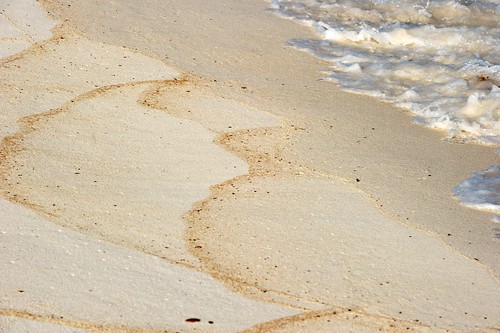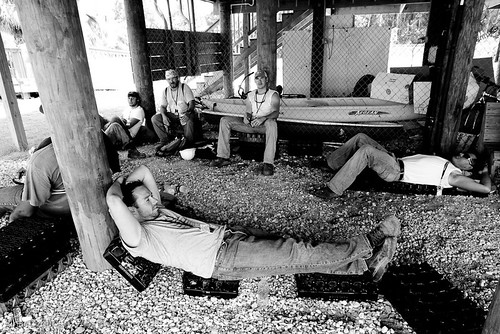Some of the Challenges We Face
Duncan Davidson reporting from the field: I didn’t expect that this expedition would be easy. In fact, from the moment we started talking about it, I knew it would be challenging in a multitude of ways. This story is a complicated one and affects a large area across several states and a marine ecosystem that we don’t fully understand. To make things more complicated, due to the depth at which the oil is released, the dispersants used, and the currents in the Gulf, there’s no single place to just go to find out what’s going on. The situation changes day to day.
For example, yesterday we scouted through Mississippi and ended up in Alabama based on reports and photographs of oil on multiple beaches. We did find oil in the water, but we didn’t find massive slicks rolling up on shore. The big slick off of Orange Beach is reported to be 8 or 10 miles off shore. Every so often, the currents will pull a part of the slick off and send it ashore. Fortunately, there are thousands of workers on the beaches ready for it and they’re doing a good job of cleaning the visible oil and tar up. We’ve walked several beaches that are being heavily worked by crews that only have small tar balls and stained sand on them.
In the waves, however, we often see oil of some sort. And, there’s a lot more oil out there waiting to wash up. There’s so much oil in the water column that it’s not a stretch to imagine that we’ll be seeing it wash up like this for years or even decades. Imagine that. Are we ready to deal with this for that long over the entire shoreline of the Gulf of Mexico?
Access has been a constant problem. We expected that coming in, but the relentless pervasiveness of control is impressive. I have a working theory now about why we’ve found this. Yesterday, we talked with some workers that weren’t temporary. They’re full time clean up workers for BP. It makes sense that if BP and the other oil companies have full time crews that do clean up work in all sorts of locations, there would be an institutionalized protocol of dealing with all sorts of small incidents in a way that controls the story. Here, they’ve likely just scaled up these protocols to a larger degree. It’s only a working theory for now, but it meshes with my experiences with the way other corporations control their messaging.
Another challenge we’ve been facing is the weather. It’s brutally hot. The workers on the beach are getting long breaks to keep them from passing out. We’ve been cutting ourselves much less slack and we’re feeling the effects of it. Sometime yesterday, we all started feeling the affects of dehydration and our language skills took a hit. We’re going to have to be much more careful with paying attention to our physical limits.
Now that we’ve spent a full day surveying the large scope of the issue from Louisiana to almost Florida, We’re heading back into Louisiana to dig deeper into the most sensitive areas. The wetlands and marshes. They can’t be cleaned up nearly as easily as the beaches and Louisiana has been dealing with the immediate effects of the problem for a longer time.



